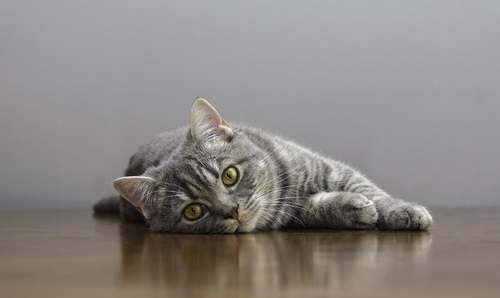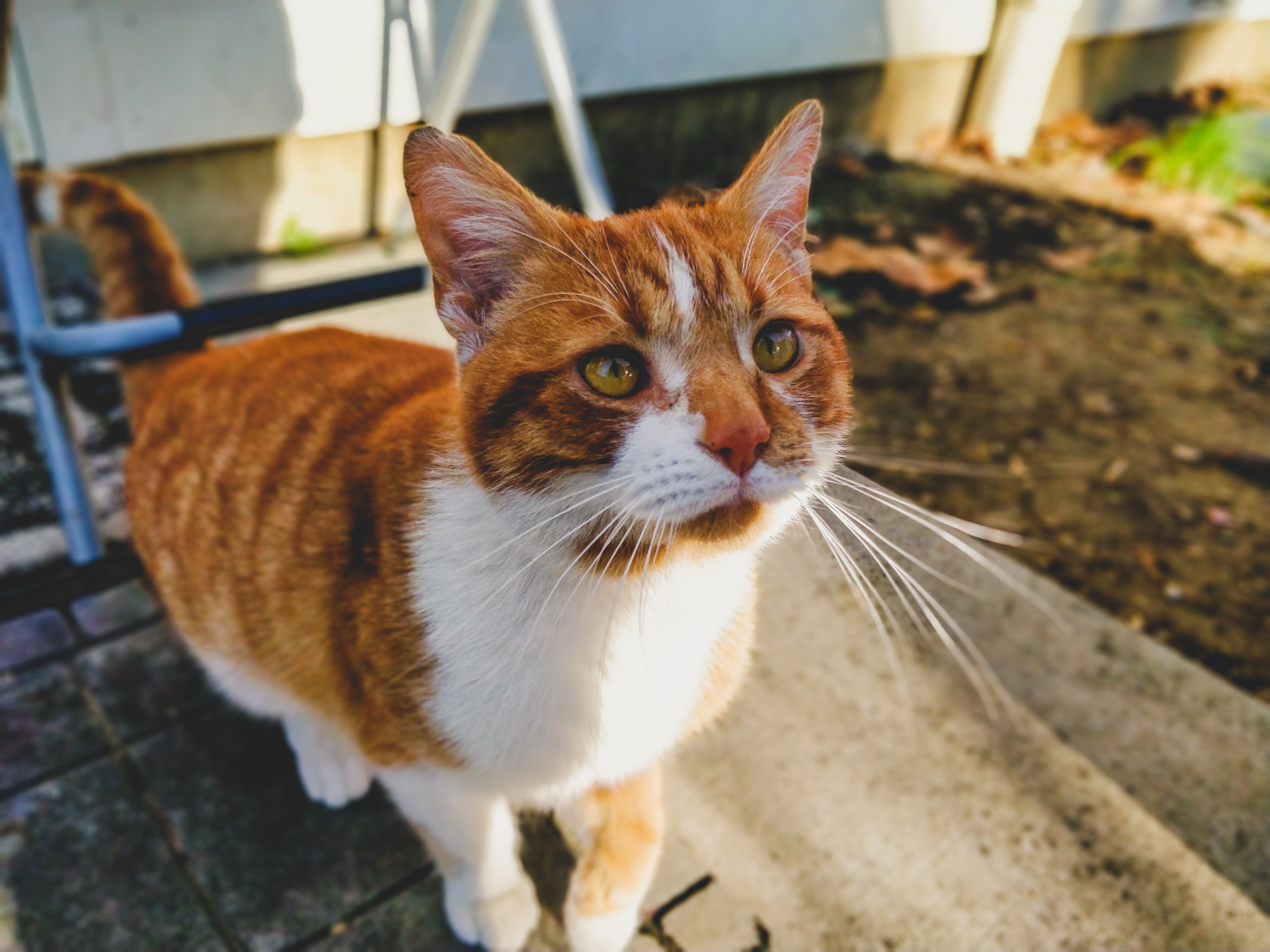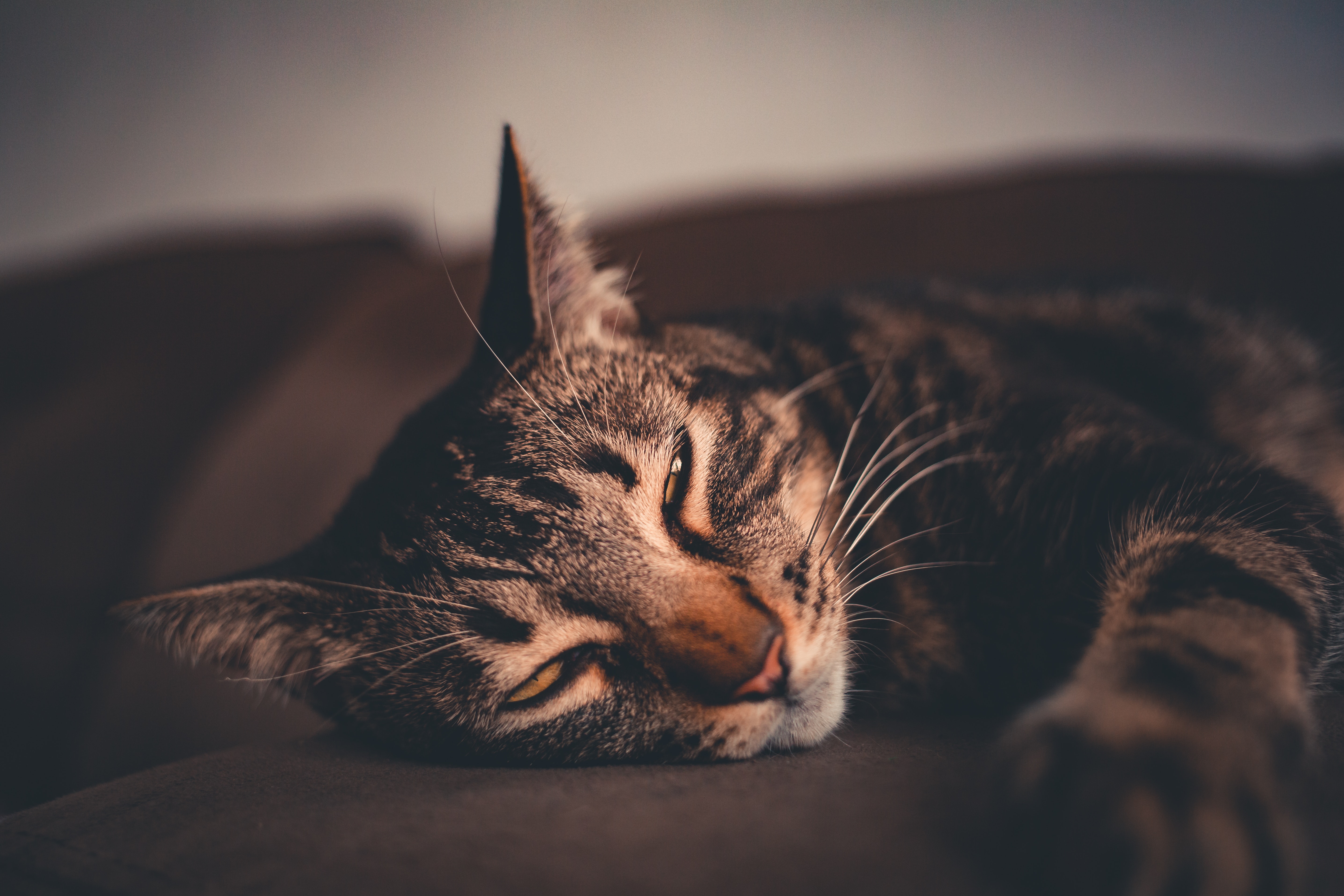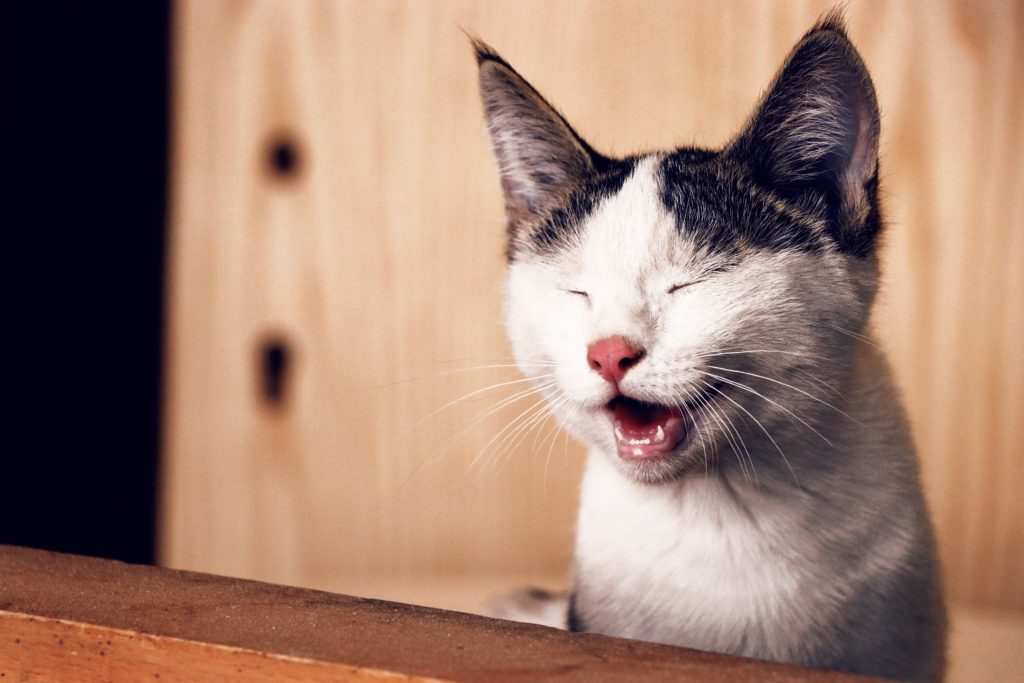Has your cat been sneezing or coughing? If your furry feline has been a little under the weather lately, you may be wondering can cats get colds. The short answer is yes, cats can indeed get colds. However, it’s not the same kind of cold humans suffer from. Even though symptoms may be similar, when a cat catches a cold it’s usually called a feline upper respiratory infection.
These infections are seen most often in kittens and cats that live in close quarters with a lot of other felines, such as in a shelter, pet store, pet daycare, or breeding facility. A healthy cat can contract an illness if they have been in contact with a sick feline, especially if they have been exposed to the illness during the incubation period.
Unfortunately, when a cat gets sick with a cold, it may not be a simple fix. Humans can just pick up some over-the-counter cold medicine and begin to feel better quickly. Unfortunately, it’s a bit more difficult for our feline friends. Thankfully, most of the time, cats with an upper respiratory infection will kick it out on their own, without vet intervention or medication. Sometimes however, a cat’s cold can be nasty and progress into something more severe. That means skipping the vet visit may not be such a wise idea.
What is Feline Upper Respiratory Infection?
 It’s similar to the cold humans get from the cold virus, but this infection could be caused by a virus, bacteria, or even both. The bacteria and viruses found most often in feline upper respiratory infections are: feline herpesvirus type 1 (or feline viral rhinotracheitis, chlamydophilia feels, feline calcivirus, bordetella bronchiseptica, and less often, the bacteria mycoplasma spp or feline retrovirus. It’s thought that 90% of all upper respiratory infections in cats stem from the calicivirus and the herpesvirus.
It’s similar to the cold humans get from the cold virus, but this infection could be caused by a virus, bacteria, or even both. The bacteria and viruses found most often in feline upper respiratory infections are: feline herpesvirus type 1 (or feline viral rhinotracheitis, chlamydophilia feels, feline calcivirus, bordetella bronchiseptica, and less often, the bacteria mycoplasma spp or feline retrovirus. It’s thought that 90% of all upper respiratory infections in cats stem from the calicivirus and the herpesvirus.
How Long Does a Cat’s Cold Last?
You can expect a cat’s cold to last as long as a cold of your own. Typically, this means seven to ten days, unless the cold is more serious. Some colds can last as long as twenty-one days. Cats are most contagious and able to spread their cold to other cats during the incubation period, which is usually the first two to ten days after the cat has become infected.
Serious colds have to be monitored closely as they could very easily lead to pneumonia in your cat. Sometimes cats can have a recurring cold, even when properly treated. This can also lead to pneumonia, so it’s important to keep an eye on your kitty if you suspect he may be developing a cold.
Symptoms of Colds in Cats
In the majority of cases, a cat’s symptoms will be minor and resolve on their own without treatment. In other cases, cats may develop more serious respiratory infections. Kittens, elderly cats, or cats that are already sick are the most vulnerable and will need to see a vet for treatment as soon as possible if you suspect they are ill.
Milder symptoms of a cat cold include:
- Runny nose (clear)
- Runny eyes (clear)
- Sneezing
More serious symptoms of a cat cold include:
- Fever
- Dehydration
- Lethargy
- Appetite loss
- Excess swallowing (due to drainage)
- Severe congestion
- Struggles breathing
- Breathing with the mouth open
- Coughing or sneezing excessively
- Painful mouth, nose, or eye ulcers
- Thick discharge from eyes and nose (yellow, green, white)
How Do Cats Get a Cold?

Colds in cats are transmitted the same way colds are transmitted in humans. If they are exposed to another cat that’s already sick, they can contract the illness themselves. Especially if the other cat is sneezing and coughing a lot, with a lot of discharge. Cats with weaker immune systems are more susceptible to viruses and bacteria than healthier cats, which means kittens, elderly cats, and cats with already compromised immune systems may get a cold more often than healthier felines.
Cats that sneeze and cough can spray minuscule drops of discharge into the air that can quickly infect other kitties that are in close proximity. This is why cats in shelters and pet stores get sick at the same time. Unfortunately, cat colds can be spread in other ways too, including direct contact and through contamination of objects a cat uses on a frequent basis, like food bowls and bedding.
If you have more than one cat in your household and suspect one may have a cold, you should wash all bedding, blankets, bowls, and toys in soapy water to kill germs and bacteria and try to prevent the cold from spreading to your other cats. If possible, keep your cat with the cold isolated until he feels better.
Diagnosing a Cat with a Cold
Although you can usually tell for yourself if your cat has a cold, you should see a vet to determine the underlying cause. You definitely don’t want to ignore it, especially if it doesn’t clear up on its own quickly. It’s especially important to see your vet if your cat displays more severe symptoms like a fever, lethargy, and dehydration. The sooner your cat is seen and treated, the better.
Once you see your vet they may want to run a few different tests, like blood and chemistry levels, an electrolyte check, and possibly a urine test. Some vets may want to test for other viruses like feline immunodeficiency or cat leukemia just to rule it out and be safe. If your cat seems to suffer from chronic colds, a vet may order more tests like x-rays and cell cultures to make sure there’s nothing else wrong they may be missing. Cultures may also be taken if your cat presents with ulcers in their nose, mouth, or throat.
Can Cats Transmit the Illness to Humans?
While there have been a couple cases documented of a cat making an owner sick and vice versa, that was related to the H1N1 flu virus. Due to its rarity, you should not be concerned about contracting a cold from your cat.
Most cat colds are related to viruses and bacterium that are specific to the species and are not considered spreadable to humans (zoonotic). Just to be safe, always wash your hands when handling a cat with a cold and try to stay out of their way if you yourself have a cold. Again, it’s not common or even likely, but viruses and bacteria adapt all the time, so it’s always better to be safe than sorry.
Treating a Cat’s Cold
Treatments of a cold in a cat will really depend on how severe the cold is. Often a cold will resolve itself without any intervention on your part, especially if your cat’s symptoms are mild. It’s only when a cold gets more severe that treatment with medications and fluids become necessary.

Some vets may prescribe oral antibiotics and/or anti-bacterial medications to treat the cold as well as prevent other infections from occurring because your cat’s immune system is weak. In cases where a cat is not eating well, a vet may prescribe appetite stimulants. If a cat has discharge or a feline eye infection, they may prescribe medications as well.
There are also medications to help boost your cat’s immune system so that the cat’s body can fight off the virus, and medications that can inhibit the reproduction mechanism of the herpesvirus to stop the infection from getting worse. Also, cats are now able to be vaccinated against frequent upper respiratory infections in addition to the feline distemper vaccine.
If your cat has a mild cold, just make sure they are eating and drinking enough to prevent dehydration. You should also avoid giving your cat any kind of over-the-counter medications yourself.
Preventing Your Cat from Getting a Cold
It can be tough to prevent a cold. Vaccinating your cat can help prevent colds from two of the most common sources, but it doesn’t mean your cat can’t still get sick. You can also make sure your cat’s environment is clean and germ-free by disinfecting favorite items on a regular basis and cleaning bedding, litter boxes, and play areas at least once a week. Keeping your cat isolated when they are sick is also key to reducing the potential of other cats in the home catching the cold.
If you bring home a new feline friend, you should see a vet first, especially if you have other cats and pets in the household. Even if your new cat is given a clean bill of health, it may be wise to limit contact between other household animals for the first week or two, just to make sure.
Colds can sometimes take a week or two during the incubation period and you could inadvertently make the other kitties in your home sick if your new family member is carrying germs that haven’t manifested with clinical signs yet. It’s also especially important to keep food and water stations separated because they are two of the fastest and easiest ways cats can spread germs through saliva and discharge.
Tips for Caring for a Cat with a Cold
You can pamper your feline when he has a cold by helping him groom. Cats groom themselves often, but when he is sick, you may need to help him keep his eyes and nose clean and free of crusted, hardened mucus. You can use a clean rag and dampen it with warm water, or a dampened paper towel. Some vets may prescribe a decongestant if your cat is having a hard time breathing that you will need to administer regularly until his cold passes.
You can also try running a humidifier to help loosen congestion and encourage drainage. Note that if your cat is severely congested it can affect his appetite. That means you’ll have to get creative when feeding him, so his health doesn’t suffer more from lack of nutrients. Try coaxing your cat to eat using a nutrient-dense canned cat food, or even a meat-based baby food. To make the food more appealing, try warming it up before serving it to your cat.
You will also need to keep a close eye on your feline’s water consumption. Dehydration can cause serious problems and your cat is more prone to dehydration when he’s not feeling well. You can check hydration levels by doing the pinch test on your cat’s neck.
If he is dehydrated, the skin will not bounce back into place as fast as normal. It will remain sort of “pinched” and release slowly. If you’re still not sure, try assessing your cat’s gums for a pale or red color and whether they feel sticky to the touch. In a hydrated cat, the gums will be pink and feel moist to the touch.
Make sure your cat stays warm while sick. You can add extra blankets to his bedding or try wrapping a warm water bottle inside a blanket or towel for him to cuddle up to.
The bottom line is that yes, cats can get colds. But with time and proper care, most cats can bounce back quickly.
Sources:
“Feline Upper Respiratory Infection.” Pet Health Network, www.pethealthnetwork.com/cat-health/cat-diseases-conditions-a-z/feline-upper-respiratory-infection.
“Cat Colds.” Banfield Pet Hospital®, www.banfield.com/pet-healthcare/additional-resources/article-library/conditions-illnesses/cats-catch-colds-too.
“Do Cats Get Colds?” Pet Health Network, www.pethealthnetwork.com/cat-health/cat-diseases-conditions-a-z/do-cats-get-colds.




